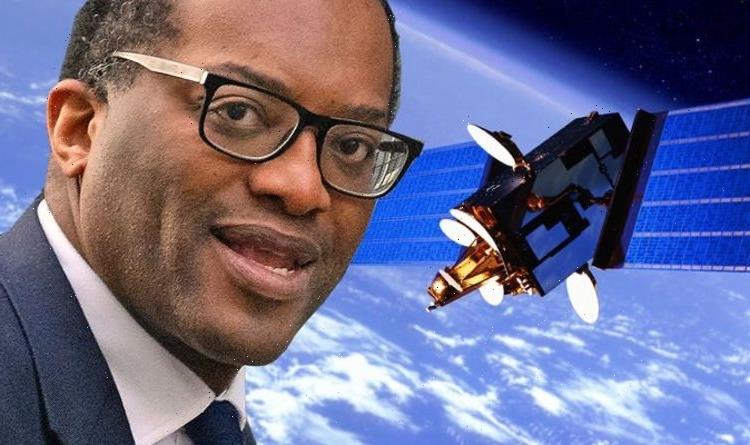SpaceX launches batch of Starlink satellites with Falcon 9
We use your sign-up to provide content in ways you’ve consented to and to improve our understanding of you. This may include adverts from us and 3rd parties based on our understanding. You can unsubscribe at any time. More info
Answering questions at the Parliamentary Space committee today, Secretary of State, Department for Business, Energy & Industrial Strategy, Kwasi Kwarteng declared that the UK could control almost a tenth of the global space market by the end of the decade. To achieve this, Mr Kwarteng promised to double the value of the country’s space industry from £16 billion to £32 billion.
This echoes a previous ambition from the government to corner 10% of the global space market.
At the meeting, Mr Kwarteng said: “In terms of the numbers that we’re looking at, the number for space industry is about £490 bn in terms of the global market by 2030.
“Today, our market is worth about £16 billion.
“Doing quick arithmetic, you can see that if we can double from £16bn to £32bn, we’re not quite at the 10%, it’s more like 8%.
“That is a more realistic projection than taking 10% of a market that’s growing very rapidly.”


The Business Secretary advised that the UK needs to have a more targetted approach in order to achieve the best value, instead of trying to chase after a “generic proportion of a global market that’s growing extremely quickly.”
He continued: “Different parts of the space industry require different levels of capital deployment.
“Just having a 10% for the whole industry doesn’t really reflect the variety of technologies of the industry.”
Last week, the UK space industry took a massive leap forward as spaceflight company Orbex lodged an application with the UK’s Civil Aviation Authority (CAA) for a licence to allow it to launch rockets from the north of Scotland.

The licence application marks another important milestone in Orbex’s quest to begin commercial space launches from the UK.
Space Hub Sutherland, the world’s first carbon-neutral spaceport, is currently the only spaceport in the UK to have received full planning permission.
Mr Kwarteng also noted that post-Brexit, Britain is very focused on the importance of developing a space industry that ties into its own national strategy.
He said: “We have the space defence strategy, the integrated review, which is also looking in space, and the innovation strategy.
DON’T MISS:
Biden humiliated as he’s ‘thrown under bus’ by Scholz and Macron [INSIGHT]
‘Food prices to rise further’ in UK as Putin BANS export of chemical [REVEAL]
Rishi turns back on PM and calls for six oil and gas fields to be fire [SPOTLIGHT]


“In terms of where we’re cooperating with European colleagues, we’re very focussed on the national strategy.
Mr Kwarteng highlighted that in certain projects like the EU Copernicus Earth Observation Programme, the UK is eager to cooperate with the bloc.
He added: “In other areas, we want to develop national, and we feel that we can develop nationally.
“The good thing about all of these strategies is that when we take them all together, there’s a very clear sense of what our national objectives are, and that comes first.
“If we can realise those objectives through cooperation, we’re prepared to do that.
“But clearly, the starting point is our own national policy.”
Source: Read Full Article
